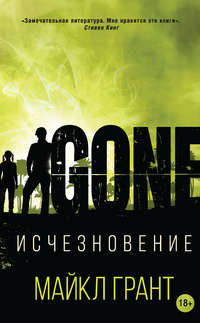
Полная версия
The Monster Series
The air between them seemed to vibrate.
“Nebraska,” Cruz said.
Shade nodded. “Uh-huh.” Time to go all-in, to trust her instincts. “But the truth is it will land in Iowa, as originally calculated.”
“So, um . . .”
“So . . . someone changed the inputs,” Shade said, her voice low and silky. “Someone with access to my father’s computer. My dad is a genius, but his memory for little things isn’t great so he sticks a Post-it to the bottom of his keyboard. You know, for his password.”
The play of emotion across Cruz’s face was fascinating to Shade. First Cruz thought she was hearing wrong. Then she thought Shade was teasing. And then finally, even before she asked, she knew Shade was telling the truth.
Cruz, Shade thought, should never play poker: her face revealed all. She could practically see the shiver go up Cruz’s spine.
Cruz said, “You.” It was not a question.
“I’m pretty good at math,” Shade said. “And Wolfram-Alpha helps.”
“You changed your dad’s calculations?”
Shade nodded, and tilted her head to the “quizzical” position. “The question is, Cruz, why did I change the numbers?”
It was a clear test, a clear challenge, and Cruz passed, saying, “You’re going to try and take the rock.”
“No,” Shade said. “I won’t try. I’ll succeed.” Then after a beat added, “Especially if you help me.”
“YOU KNOW . . . YOU look familiar,” the woman said, narrowing her eyes. She was a mother with a two-year-old in her shopping basket and a five-year-old tagging along and playing with the candy in the checkout rack.
“I get that a lot,” the cashier said.
“You’re one of those Perdido Beach people! The black one. The lesbian! That’s you! Oh my God, that’s you!”
Dekka Talent shook her head, putting on her tolerant smile, not easy in the face of being identified as “the black one,” and “the lesbian.” She tapped the Safeway name tag on her chest and said, “I’m Jean. But like I said, I get that a lot.”
“I can’t believe you’re working as a cashier! You don’t really look like the actress who played you in the movie.”
“Ma’am, did you find everything you wanted?”
“What? Oh, yes, except for the brand of orange juice my son . . . Wait, can I get a selfie with you?”
“Ma’am, if you’ll just push the green button there on the credit card machine . . .”
It had been a week since the last “recognition moment,” as Dekka Talent thought of it. Progress. If you graphed it out over the last four years since the end of the FAYZ—what most of the world still called the Perdido Beach Anomaly—the number of “recognition moments” had definitely declined. Declined, but not stopped entirely.
Dekka’s work shift ended without any selfies. She punched out, changed out of her faded blue smock into motorcycle leathers in the locker room, and exchanged a few pleasantries with other employees either coming on shift or going off. She politely refused an invitation to after-work drinks—she was still just nineteen years old, though people assumed she was older. And she was broke besides—she’d had to buy new tires.
There was a seriousness about Dekka, a metaphorical weight that people could feel, and that, along with her dark skin and dreads and general air of don’t-give-a-damn, left people seeing her as older. Older and tougher because, with some nonmetaphorical weight, with her powerful legs and shoulders, you might pick a fight with Dekka, but only if you were drunk or very stupid.
Dekka walked outside to the artificially bright, slightly chilly parking lot. Dekka’s pride and joy, her Candy Fire red and black Kawasaki Ninja 1000, waited under its transparent plastic rain cover. Dekka hated her job, but in decent weather the ride from the Strawberry Safeway, up the 101, across the San Rafael Bridge to the apartment she rented in Pinole, was the best part of her day. Unless it was raining, which was seldom in the San Francisco Bay Area.
Dekka folded the rain cover and thrust it into one side of the hard plastic saddlebag, and a few groceries she’d picked up on the other side. She settled her helmet over her dreads, relaxed in the reassuring anonymity from the black visor, and was just about to fire up the engine when two very large black SUVs pulled into the mostly empty lot.
The SUVs came to a stop, forming a sort of loose V directly in front of her.
Dekka started the engine, feeling the familiar reassuring throb that vibrated all through her body, glanced left to make sure she could turn away, and the passenger window of the second SUV rolled down to reveal an identity card deliberately illuminated by a cell phone light.
“No, no, no, no,” Dekka said, but in a tone of resignation not fear. She sighed, killed the engine, and pulled her helmet off. “Really? After an eight-hour shift on my feet?”
Two men and a woman climbed from the second SUV, each showing ID. They were all dressed in Official Civilian Outfits: dark blue or black suits, ties for the men, an open collar for the woman. They might as well have had the word “Government” tattooed on their foreheads.
“Ms. Talent?” the woman asked. “Dekka Jean Talent?” She was middle-aged, stocky, with a wide, flat face that suggested Slavic roots.
“What’s this about?” Dekka asked, guessing at least part of the answer. They weren’t there about the damaged canned goods she may have on occasion taken without exactly getting specific approval. Nor were they there to collect for the speeding ticket she got rocketing down the Pacific Coast Highway south of Santa Cruz the week before.
“I’m Natalie Green,” the woman said, producing a brief spasm that might be a type of smile. “I’m with Homeland Security. This is Special Agent Carlson, FBI, and Tom Peaks.”
Dekka did not miss the fact that Tom Peaks was not identified by his affiliation, or that his identity card had been very quickly folded away before she could really see it.
“What?” Dekka asked.
“We would like a few moments of your time.”
“Why?” She was not yet worried—this was not her first encounter with authority. From time to time some branch of government would decide to question her, usually about one of the other Perdido Beach survivors. She had steadfastly refused to give any information at all—there were still those who wanted to prosecute some of the survivors, and Dekka would do nothing to help make that happen.
What happened in Perdido Beach stayed in Perdido Beach.
Well, aside from about two dozen survivor books, a movie and a TV series ‘inspired by’ what everyone else called the PBA, the Perdido Beach Anomaly, but what Dekka, like all who were there, would always and forever call the FAYZ.
Natalie Green shrugged, tried out her scary millisecond smile again and said, “Maybe not out in the open in a parking lot? If you would come with us . . .” She gestured toward the second SUV.
“Really?” Dekka asked again, sounding irritated—which was hardly unusual for her. Patience was never one of her virtues.
“Ten minutes. Fifteen, tops,” Natalie Green said. “We won’t leave the lot.”
Dekka cursed, not quite inaudibly, and said, “Whatever.”
The driver of the second SUV got out and came around like a well-trained chauffeur to hold a door open for her, and remained outside as Green and Peaks sandwiched Dekka into the middle of the back seat and agent Carlson took shotgun.
“Nice,” Dekka said, looking around at the posh leather interior. The dashboard glowed blue and red. The heater streamed air onto the windshield, holding a line of condensation at bay.
“Ms. Talent, first of all, it’s an honor to meet you,” Green said. “I’ve read most of the literature that came out of the PBA, and it’s clear that you were very important to the survival of those people, very central to stopping the worst excesses.”
“Uh-huh,” Dekka said, slow and guarded. “Don’t tell me you want a selfie.”
Blank stare.
“Okay,” Dekka said with mounting impatience. “Can you just tell me what this is about?”
“It’s been four years, well, a little more than four years.” It was the first thing Tom Peaks had said. He had an odd voice, too high to match the serious face. “You’re what, eighteen years old now, a legal adult?”
That voice could get grating pretty quickly.
“Nineteen, and who are you again?”
“Tom Peaks.”
“Yeah, I heard your name, but who are you?”
He was in his late thirties, wore moderately fashionable glasses, and parted his sandy hair on one side with military precision. His blue eyes were overlarge behind the glasses, intelligent, alert, and almost rude in the directness with which he stared at her. “I’m with DARPA. That’s the Defense Advanced Research Projects Agency.”
“Okay.”
“Are you happy working at Safeway?” Green asked. She was annoyed by Peaks, thought he was pushing himself into what she, Green, should be managing.
Dekka gave Green an incredulous look. “No one is happy working at Safeway. It’s a minimum wage job. Half my income goes for rent.”
“You never went back to school? No plans for college?”
“I’m not very smart.”
Now it was the FBI agent’s turn, talking over his shoulder and watching her in the rearview mirror which he had tilted for that purpose. “All due respect, Ms. Talent, we have a pretty good idea of your IQ. You’re certainly bright enough to be doing something other than cashiering. You could take the GED.”
“Maybe I just love touching vegetables.”
“Or maybe you already got your GED, passed it in the seventy-fifth percentile, and were offered a full scholarship to Cal State San Fran and decided to turn it down and do various dead-end jobs: you delivered flowers, you worked at Toys R Us during Christmas, you temped . . .”
“And again: why are we talking? Why am I not on my way home to feed my cat?” Dekka was beginning to feel trapped. She glanced at the door handle and saw that it was not locked.
“We’ve done studies of the PBA survivors, especially the ones who acquired . . . powers, for lack of a better word,” Green said as Peaks and the FBI man watched. “Of the three hundred and thirty-two kids initially trapped in the PBA dome—”
“We called it the FAYZ,” Dekka interrupted.
“Of those three hundred and thirty-two kids, fifty-one developed one supernatural power or another. Most were relatively weak powers. Only nineteen of you developed major powers and survived. You were one. And of those nineteen, seven have since developed serious psychological disorders.”
“It was kind of stressful, what with the starvation and the violence and the forty percent death rate.” Dekka made no effort to tone down the sarcasm.
Peaks said, “Yes, there’s that, but we suspect there’s more to it. Some of you adjusted well to life outside the PBA . . . the FAYZ. You among them, even though your parents were not exactly enthusiastic about you rejoining the family. And yet you were among the most traumatized. Honestly, when I read about some of what you endured . . .” He shook his head in sincere wonderment. “Despite having a power, a significant power, and despite suffering terribly, and forming part of the leadership with all the additional stress of that, you seem to be well-adjusted.”
Emphasis on seem, Dekka thought. You’re not there when I wake up at three in the morning screaming with my bed damp from terror sweat, mister.
Or maybe they are, Dekka added, mentally scrolling through her memories, looking for any sign that the privacy of her little apartment had been violated. Not that the FBI would leave traces.
“Yes, I am a great big bundle of happiness and adjustment,” Dekka said. “Are we done?”
“Ms. Talent,” Peaks said, “May I call you Dekka?”
“Sure, Tom.”
“I would imagine you’ve tried to put all that behind you. You’re looking to get back to normal. Four years on, and you’re still trying to find normal.”
That was too close to the bone for a smart-ass response, so Dekka stayed mum, watching those intelligent, slightly lens-distorted eyes as they stared frankly at her.
“You are, in fact, among the least affected. Lana Lazar spent time in a mental health facility.”
“I know, she’s a friend of mine,” Dekka snapped. “She’s fine now.”
“Others, like Sam Temple, the supposed hero of the FAYZ, have had—”
“Hey!” Dekka’s finger was instantly in Peaks’s face. “Supposed hero? Screw you. You don’t disrespect Sam Temple where I can hear it.”
She reached across Green for the door handle and popped the latch.
“I apologize,” Peaks said quickly.
Shaking her head, as if disagreeing with her own choice, Dekka closed the door again and rounded on Peaks. “If you’d lived through one tenth of what Sam Temple lived through, you might start drinking too, if you ever nerved yourself up to crawl out from under the bed to start with.” Then in a calmer tone, “Anyway, he’s on the wagon. Sober for sixteen months.”
“Fifteen months, twelve days,” the FBI agent said from the front seat. Then in an actual moment of humanity, he added, “I’ve got nine years, four months and nineteen days myself.” He superstitiously rapped his knuckle on a piece of wood trim.
“So you people do still keep an eye on us,” Dekka accused.
The FBI agent Carlson and Homeland Security’s Green both nodded. Peaks said, “Of course the government keeps track of you. At one time you possessed extraordinary powers. You, Ms. Talent, were able—as a simple act of will—to cancel the effects of gravity. Incredible! Sam Temple could fire killing energy beams from his hands. There was a girl who had the power to move at speeds just short of breaking the sound barrier. And—”
“Brianna,” Dekka said softly. Then with a wistful smile, “The Breeze.”
“You were friends,” Green said, not quite a question.
But Dekka was no longer listening. She was seeing Brianna’s wild, reckless grin; hearing her fearlessly proclaim that she was off to this fight or that; feeling a sudden gust of wind and catching just a glimpse of ponytail standing straight back as Brianna blew past.
Other memories were there too, dark and awful images, but Dekka brushed those aside. Four years and she still could not think about Brianna without crying. It was an unrequited love, maybe a ridiculous love, but love just the same, and it still warmed Dekka. And sometimes it burned her.
Dekka took several deep breaths and cursed herself for the need to wipe at tears.
You were brave one too many times, Breeze.
“Our point is,” Peaks persisted, “you are almost uniquely normal, stable. No alcohol or drug issues aside from the occasional joint or beer. No psychological breakdown. No wild or reckless behavior—other than speeding violations on your motorcycle. Of all the people who gained—and then lost—these supernatural powers, and endured the PBA, the FAYZ, you, almost alone, seem to have avoided going . . . becoming . . .” He searched for the right word, so Dekka supplied it.
“Crazy. That’s the scientific term: crazy.” Dekka felt a sudden longing for her dinky apartment and especially its tiny shower. Four years on, the FAYZ left its marks: she ate too much, a common problem for people who’ve been close to starvation; she still had nightmares, though less frequently; and she took two long, hot showers—drought be damned—every single day, reveling even now in the luxury she’d been denied for that one-year lifetime in the FAYZ.
Peaks nodded, accepting the word. “You didn’t go crazy. There’s something about you, maybe genetic, maybe psychological, that made you particularly resistant to whatever the powers do to those who possess them.”
“It’s not about the powers,” Dekka said. “It’s all of us who were there. It was a whole lot of bad things we had to do to survive.”
“No,” Peaks said flatly. He shook his head by millimeters so that it was more a vibration than a back-and-forth. “The numbers don’t lie. Among survivors of the Perdido Beach Anomaly, who did not have any mutations, thirty-six percent have had serious psychological or behavioral problems. Among those with major powers? The number is closer to ninety percent.”
Dekka stared at him. Then at Green. And at the eyes of the FBI man watching her in the rearview mirror. “What is this? What is this about? What do you people want?”
“We will be happy to tell you.” Green again. She pulled out her phone and tapped the screen a few times. “There’s a document on this screen. Read it, sign it—thumb print will do—and we can tell you everything.”
Dekka took the phone and read, flicking down the page. “This swears me to secrecy.”
“Under penalty of law, and we are very serious about prosecuting unauthorized statements,” the FBI agent said without turning around.
“Yeah?” Dekka said with a short laugh. “Well, it’s been fun, folks, but I’m sweaty and I smell like the vanilla almond milk some brat spilled on me. So, goodnight.”
Again Dekka reached for the door and when Green didn’t move aside a hard look came over Dekka’s face.
Peaks leaned into her, to an intimate distance, an uncomfortable distance that conveyed just the hint of threat. “We need one of you, preferably you. But if you refuse, our next stop is Sam Temple. And I think we both know he’ll agree to help us.”
“Hey, Sam’s sober, and Astrid’s got her head screwed on straight, so leave them the hell out of this. Leave them both alone.” Peaks met her gaze, unflinching, and Dekka sighed. “Ah. So it’s like that.” She shook her head, realizing she was trapped. “You have any idea how many times that boy, that man, saved my life?”
“Many times.” Peaks again, and now the pitch was lower, lending an almost compassionate tone. “I’ve read all the published stories, Ms. Talent, and many unpublished statements. So I know as well that you saved him. Many times. I know that you were his strong right arm whenever things turned dangerous.”
Then Green spoke up, sounding disapproving. “You’re a lesbian, and black, and yet you’re inevitably referred to as the ‘strong right arm’ to a white male. Doesn’t that grate on your nerves? Aren’t we supposed to be past that—”
Dekka let go a snort and sat all the way back in her seat, willing herself to remain calm. “A white male?” she echoed, her voice vibrating with suppressed anger. “He’s not a white male, he’s Sam freaking Temple. You can read all the accounts you want, but you don’t know what he did, and how . . .” Tears threatened to well again. Dekka stabbed a finger at Green. “Every single person . . . every single one . . . who came out of that hellhole alive is alive because of him. Sam Temple’s strong right arm? You can chisel those words on my tombstone, lady, and I’ll be a proud and happy corpse.”
“We’d rather have you,” Peaks said, and took Green’s phone and held it out for Dekka. The document glowed up at her. “Press your thumb on the button.”
Dekka did it, because if she didn’t, Sam would. He would of course be furious if he found out she was protecting him. The thought brought a small smile to Dekka’s lips. Sam and Astrid didn’t need more of the FAYZ, they needed college and work and lives and hopefully, someday, a bouncing little baby that they’d name Dekka if she was a girl.
That was Dekka’s fantasy for them, anyway.
“Am I going back to work tomorrow?” she asked.
Tom Peaks shook his head.
Dekka unclipped the name tag with her cover name—Jean, her middle name—reached across, rolled down the window and tossed the tag out to clatter on the blacktop.
“Wherever you’re taking me, my bike had better get there too, and without a scratch. Oh, and fill the tank.”
ASO-2
ANOMALOUS SPACE OBJECT–2 struck planet Earth after its million-year trip, landing precisely where it was expected to land—in a section of the North Sea just off the coast of Scotland that had been surrounded by NATO ships—American, British and Dutch. Below the water one British and one US submarine were holding the perimeter around a French deep-sea exploration submersible. Ships from the Russian Navy and the Chinese Navy looked on from a barely discreet distance, their surveillance equipment all atingle.
But the meteorite played a trick on all of them. The seventeen-pound object hit perfectly in the target zone moving at about ninety thousand miles an hour, but like a rock slung sidearm toward a pond, it skipped.
The first skip carried it six miles.
The second skip carried it just two miles, but that two miles took it to the Isle of Islay where it struck a rock outcropping—still moving at fantastic speed—and broke apart.
Homeland Security Task Force 66 immediately diverted every resource at its disposal—the international naval force and their marines, land-based police and military forces—and turned the sleepy Isle of Islay—pronounced “eye-la” and best known for sheep and Scotch whisky—into something between a war zone and a bad action comedy. Within an hour the coast of Islay was beset by dangerous-looking ships, while helicopters buzzed around like bees who thought Islay was their hive.
All the activity brought the islanders out of their homes and fields and businesses to see what was going on. Once they had deduced that the military and police of several nations were all searching for a meteorite, out came the metal detectors and the sifters and the shovels. The locals might not know what the rock was, but they knew it had value.
Yet it was not greed that caused the biggest problem, rather it was kindness. It was young Delia Macbeth, fourteen, who saw her little brother, Sean, just three years old, playing with a chip of dark rock. The chip was oddly shaped, in that if you held it a certain way it looked a bit like Mickey Mouse. Sean was sucking on the rock and at first Delia did the proper big sister thing and took it from him. Then Sean started bawling, so Delia did the easy thing and gave it back.
After all, it was just a rock, and if Sean wanted it that badly . . .
Search teams swept the lower half of the island and eventually recovered sixty percent of ASO-2.
Sixty percent.
The other forty percent was scattered across fields and woods. And about three ounces of it was in the greedy fist and slavering mouth of a three-year-old with a notoriously bad temper.
DAYS PASSED. HOMEWORK was done. School was attended. But school had ceased to be the center of Cruz’s life.
They had dinner once with Shade’s father, Professor Martin Darby, just back from Scotland. He was a good-looking man, a silver fox type, formal by nature, but trying to be accessible. “Please, call me Darby, everyone does.”
He tried to play the cool dad, but his interest and attention were elsewhere. He seemed overly formal with Shade, and she returned it in kind. Not that there was any hostility; on the contrary, the affection and mutual respect were clear, and something Cruz envied terribly. But Professor Darby’s mind was not on his daughter, let alone his daughter’s new friend, who—even a distracted astrophysicist had figured out—was not a boyfriend.
Above all, Shade and Cruz planned. Which was to say, Shade planned with ferocious efficiency and relentless logic, as it began to dawn on Cruz that while the scheme might seem wildly improbable, even impossible, it was no such thing for her impressive new friend.
Cruz had never met anyone like Shade. Not even a little like Shade. It was as if there were two people living in that pretty, scarred body: a high school science nerd and a shark. Sometimes Cruz played a little game with herself, seeing Shade’s unblemished left side as representing an interesting but essentially normal high school girl; and the right side, the side with the scar, as the shark. The girl Shade Darby was funny and relaxed and even moderately empathetic; the predatory fish? Well, as the famous movie line went, the shark had “lifeless eyes, black eyes, like a doll’s eyes.”









